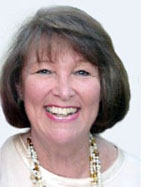By Cynthia Citron
 LOS ANGELES— Ever since the government permitted Native Americans to establish—and keep the proceeds from—their own gambling casinos, there has been a stampede among people of many different ethnic backgrounds to claim their “Indian heritage.” This “rush to authenticity”—no matter how remote—is a running gag in Richard Montoya’s new play Palestine, New Mexico, which is now having its world premiere at the Mark Taper Forum in Los Angeles.
LOS ANGELES— Ever since the government permitted Native Americans to establish—and keep the proceeds from—their own gambling casinos, there has been a stampede among people of many different ethnic backgrounds to claim their “Indian heritage.” This “rush to authenticity”—no matter how remote—is a running gag in Richard Montoya’s new play Palestine, New Mexico, which is now having its world premiere at the Mark Taper Forum in Los Angeles.
The title, which one might assume is a metaphor for hostilities between diverse cultures, is in fact, nothing of the sort. It’s the name given sardonically to their Rez, as they call the reservation, by the Native Americans, following a large influx of “tribal” Jews.
This amusing conceit, which Montoya created, appropriately, for Culture Clash, the prominent Chicano/Latino theater ensemble, is the background for the return home to the Rez of the body of a native son, Raymond Birdsong, who had been killed in the war in Afghanistan. Ray was the son of the tribal chief, played here by Russell Means, the political activist that the Los Angeles Times called “the most famous American Indian since Sitting Bull.”
Means, who has appeared in more than 22 feature films, is a commanding and dignified presence onstage, and brings a solemnity to his role as the father of the dead soldier. Accompanying the arrival of Ray’s body is the distraught Captain (Kirsten Potter), who is determined to deliver Ray’s last letter to his father. Barred from the Rez as an unwelcome trespasser, she pleads with the armed and belligerent border guards to allow her a visit with the chief. Three of the guards, a hilarious trio of Culture Clash loonies, are closer in spirit to The Three Stooges than to the earnest and solemn Indians we usually see depicted in films.
There is Top Hat, beautifully played by playwright Richard Montoya, who talks to his bicycle as if it were a horse and carries in his hatband an “Indian authenticity card” that verifies his claim to being “1/100th Indian.” There is also Bronson (Ric Salinas), the “bad-ass outlaw” named for movie bad guy Charles Bronson, who identifies himself as a “Rhodes Scholar from East Los Angeles College.” And finally, there is Farmer (Herbert Siguenza), who rides around in a golf cart equipped with a police siren and flashing lights and worries aloud, “Do I look Armenian?”
Interspersed with the silly goings-on are projected flashbacks of the Afghanistan war—flashes of gunfire, heavily armed soldiers darting back and forth, and the interior courtyard of the mosque where Ray Birdsong met his death. There are also surrealistic touches: the water tower on the Rez momentarily becomes a dazzling white minaret, a larger-than-life portrait of Osama bin Laden suddenly appears onscreen, a line of soldiers appears in silhouette along the clifftops of the New Mexico plateau.
Ray, who spoke Pashto to the Afghanis, believed that they were one of the lost tribes of Israel. And, in keeping with the diversity theme of the play, believes that his own tribe is Jewish as well. Top Hat, it turns out, used to teach Kaballah in Santa Fe. And Farmer, examining his tribe-mates, suddenly shouts, paraphrasing Haley Joel Osment in “The Sixth Sense,” “I see Jewish people!”
Witty and well-written, but sometimes disjointed, “Palestine, New Mexico” is an interesting theater-piece. Set in Rachel Hauk’s stark desert in the midst of red sandstone monoliths, the surroundings leave you with grit in your teeth. And Paul James Prendergast’s music and sound are also dramatically effective. Alexander V. Nichols’ lighting and projection design are integral to the production and are timely and well done, and the occasional bursts of Indian dancing and chanting are the icing on the cake.
Director Lisa Peterson falters a bit, though, by keeping much of her large cast of tribe members stationary and a little wooden. They often pontificate, rather than just speaking naturally, which makes their overall message of cultural brotherhood seem a little less sincere and their body language too stiff for the message. Except for “The Three Stooges,” who are pluperfect throughout!
“Palestine, New Mexico” will continue at the Mark Taper Forum, 135 N. Grand Avenue, in downtown Los Angeles, Tuesday through Friday at 8 p.m., Saturday at 2:30 and 8 p.m., and Sunday at 1 and 6:30 p.m. through January 24th, 2010. Call (213) 628-2772 for the exact schedule and for tickets.